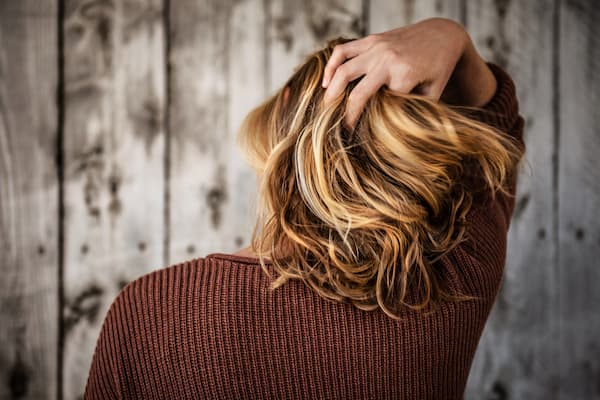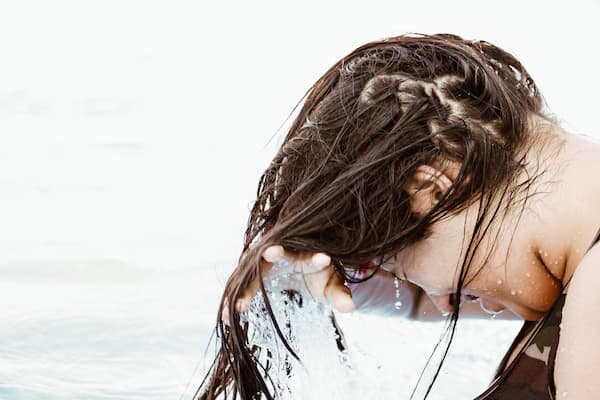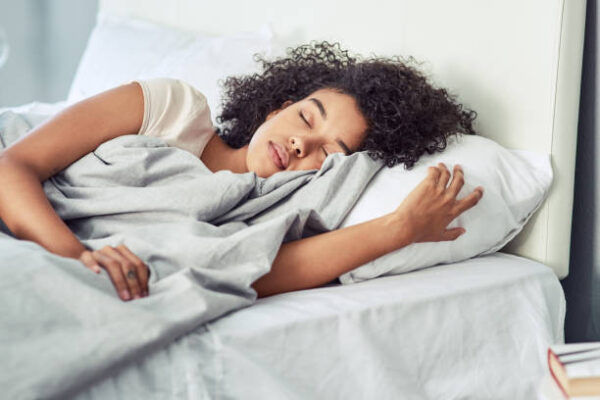Numerous factors may contribute to the frequent occurrence of itchy scalp. It could be something as straightforward as not completely rinsing the shampoo out of your hair, or it could be something more serious that needs medical attention. The followings will tell you why does my scalp itch a day after washing, and what to do about them. Please read on.
Table of Contents
Why Does My Scalp Itch a Day After Washing?
Many people experience scalp pruritus or itchy scalp, particularly those with Afro hair. You might have an itchy scalp if you notice that your hair is thinning or falling out abnormally, and if your scalp feels irritated, sore, flaky, and red.
There are several reasons why your scalp feels itchy even after washing it in the shower:
Dandruff
Dandruff is one of the most frequent causes of itchy scalps. Dandruff is a non-contagious skin condition in which the scalp develops red patches and white, yellow, or white flakes as a result of excessive oil production.
When you don’t shampoo your skin frequently enough or Malassezia, a type of yeast, has accumulated on your skin, dandruff commonly results.
U.S. dermatologist Dr. According to Jessica Wu, MD, the yeast feeds on the extra oil and skin cells on the scalp, which causes the skin cells to shed more frequently and turn into flakes.
Allergic Reaction
What it looks and feels like: Your entire scalp feels scratchy and either overly dry or greasy. You may scratch your hair if you use a lot of product on it, according to Dr. Green.
What causes it: According to Professor and Chair of Dermatology Maria Hordinsky, MD, some ingredients in hair products can cause an allergic reaction. She works at the University of Minnesota in Minneapolis. “The allergen is often fragrance or a moisturizing agent called propylene glycol (PG),” she adds.
Head Lice
Close head-to-head contact is how head lice are spread to other people. These bothersome creatures, along with head lice nits, primarily reside on the scalp, more so in the area behind the ears and at the back of the head near the neck.
They occasionally appear on the eyebrows and eyelashes as well. Therefore, you may be experiencing an allergic reaction to louse bites if you’re scratching around these areas.
Tinea Capitis
The scalp may become infected by this fungus infection, also known as ringworm. Round patches of hair loss that enlarge over time are brought on by the deep penetration of tinea capitis into the hair follicle. The rash could have a raised, splotchy, or black dot appearance.
Wrong Hair Care Products
If you react allergicly to certain shampoos, soaps, or other hair care products, you could develop contact dermatitis.
For instance, if you use hair dye that contains the potentially toxic ingredient paraphenylenediamine, or PPD, you might feel the urge to scratch.
Additionally, you might be using shampoos with sodium lauryl sulfate, a chemical that itches, and artificial fragrances.
When the scalp turns red, itchy, and flaky, contact dermatitis frequently shows itself.
Scabies
What it looks and feels like: According to Dr. it produces really strong, bothersome itching. Rodney.
What causes it: The tiny mites that cause scabies burrow into your scalp. Although it is uncommon, those who do contract the illness typically had close contact with a scavenger. They might have recently stayed in an infested hotel or motel, Dr. Rodney says.
Hives
What it looks and feels like: Raised areas of the skin that are covered in red, itchy spots.
What causes it: According to board-certified dermatologist Ife J., it’s typically connected to an allergic reaction to something, like your shampoo or a product you used. The founder and director of Eternal Dermatology + Aesthetics is Rodney, MD.
Frequent Washing of Hair
Sebum, which is an oil produced by our scalp, helps support and protect healthy hair. But if you wash your hair frequently, you might remove these healthy oils, putting your hair at risk of breakage and damage. As a result, your scalp will become dry, and you’ll feel the urge to scratch it constantly.
Psoriasis
What it looks and feels like: You have raised, scaly patches and an isolated area of itching.
What causes it: According to the American Academy of Dermatology (AAD), this is an autoimmune disorder that runs in families. However, flares can be brought on by things like stress, an infection, some medications, and cold, dry weather.
How To Wash My Hair?
Experts in hair care say that the type of hair you have affects how you should wash it.
When it comes to frequency, professional hairstylist Jorge Joao explained that people with finer hair would most likely be weighed down by the natural oils produced on their scalp, so they need to wash their hair more frequently to prevent the oils from building up and producing flakes.
Contrarily, those with coarse or curly hair can go without washing their hair every day because their hair tends to absorb natural oil, keeping it under control.
Dr., a dermatologist in Toronto, recommends the following hair care items: In many studies, the preservative methylisothiazolinone, which Sandy Skotnicki warned against, has been found to be moderately to highly acutely toxic, has been found in shampoos and body washes.
Instead, to begin treating an itchy scalp and allergic reactions on the face and neck, she advises using fragrance-free shampoos.

Shampoo Ingredients That Can Cause Irritation
The way you wash and condition your hair has a significant impact on how comfortable your scalp is, but what you use on your hair is also crucial. The next step is to determine whether the components of your hair care products might be irritating your scalp if you’ve established that you’re thoroughly rinsing your hair and scalp and using an appropriate amount of conditioner.
Only use your regular shampoo and conditioner for a weekend or so. Never use any sort of styling products on your hair. If this takes care of the issue, it’s possible that the components in your styling mousse or gel are what’s making your scalp itchy.
For best results, opt for products that do not contain these common irritants:
- Phthalates and synthetic fragrances
- Sulfates
- Silicones
- Parabens
- Formaldehyde
Shampooing Frequency
Occasionally, it can be difficult to determine whether you are washing your hair too much or not enough. Your scalp may become dry and itchy if you overshampoo your hair. Too little time between shampooing sessions can result in buildup on the scalp, which can itch.
How often ought one to shampoo? While the majority of people shampoo and condition their hair as part of their shower routine, you should only do so if your hair becomes soiled. Since oily sebum can move more easily down the hair shaft, finer, thinner heads of hair may require more frequent shampooing.
Similar to how hair that is very curly or dense may need to be shampooed less frequently because the oils from the scalp do not penetrate the hair.
To address the needs of your specific hair texture and type, consider using a “smart” shampoo and conditioner that instantly adjusts to the hair on contact, providing ideal amounts of volume moisture and protection.
Other Tips for Treating An Itchy Scalp
Here are some additional steps you can take to help balance your scalp in addition to mindful shampooing and conditioning.
Use a Scalp Serum Regularly
For the best results, use a detoxifying serum, which can help gently clarify the scalp while delivering beneficial nutrients to create a healthy scalp biome that will be comfortable and itchy-free.
Use a Dry Shampoo
Additionally, use a dry shampoo free of animal products to gently absorb sweat, oil, and odors from the scalp and hair in between shampoos. In some cases, using scalp-balancing dry shampoo instead of a shampoo treatment can help treat dry scalp.
Don’t Scratch Or Pick
Your itchy scalp problems can get worse if you scratch or pick at it. This may result in abrasions, which leave open wounds on the skin where bacteria can flourish. Additionally, picking at the scalp might cause scabbing, scarring, and even a little hair loss.
Homeopathic Treatments
You might be able to get relief from the itching on your scalp from some essential oils. However, it’s crucial to diluted two to three drops of your preferred essential oils into a carrier oil, like coconut oil, marula oil, or olive oil. Here are some of the essential oils you might want to use to make a homemade scalp oil treatment:
- Tea tree oil
- Essential oil of rosemary
- Essential oil of lemongrass
Medical Care
In order to rule out conditions like head lice or scalp psoriasis, see a doctor or dermatologist if your itchy scalp persists. Additionally, he or she can determine if you are experiencing an allergic reaction to a particular hair product you use.
A doctor may advise a medicated shampoo that has an active ingredient that is anti-inflammatory and soothes itching to treat your itchy scalp. If there are reddish patches, raised or inflamed, itchy patches, pustules, or any of these conditions, oral antibiotics may also be advised.
Banish Itchy Scalp Woes With Proper Care
Although it may not be a serious issue, an itchy scalp issue that appears shortly after shampooing your hair is undoubtedly annoying. Try a few of the advice in this article, and if you still experience pain, consult a doctor for a more thorough evaluation.
Understanding your hair care routine and the products you use on your scalp is the first step in providing excellent scalp care. By assisting in the creation of ideal scalp conditions, which in turn can promote thicker, fuller, healthier hair, using gentle, clinically validated, plant-based scalp wellness products may help you with a lot of your problems.
When to Worry About Scalp Itchiness
An itchy scalp typically doesn’t indicate anything serious. But occasionally, it might be a sign of something more serious. See your doctor when:
- Shampoos available over the counter have no impact.
- You can’t sleep because of the itching, which makes it difficult to work or concentrate on your studies.
- You notice nits or lice in your hair.
- The scratchy areas are extremely painful to touch.
Even if you believe you just have regular dandruff, Dr. Piliang advises that you should always visit your dermatologist if you have a persistently itchy scalp. Your dermatologist can examine it and advise you on the treatments that will make you feel better.





